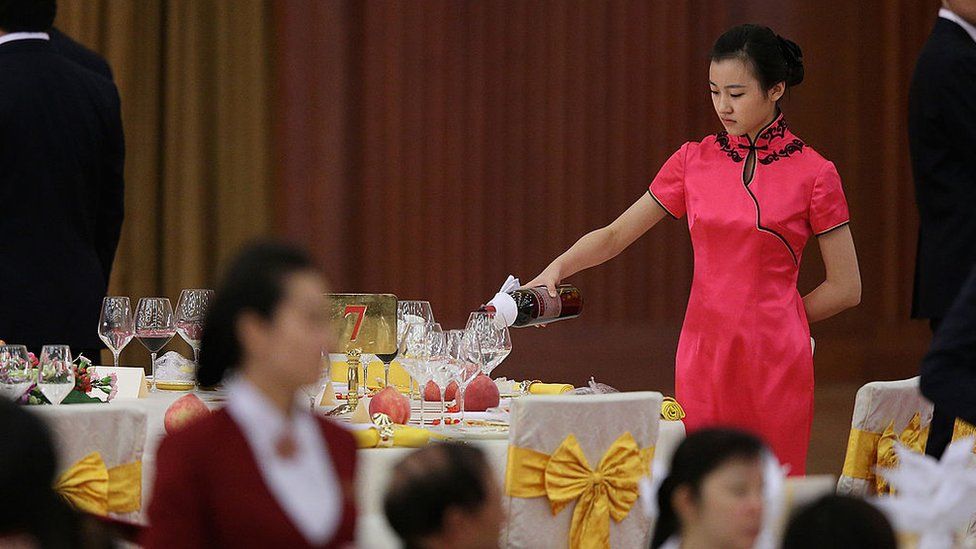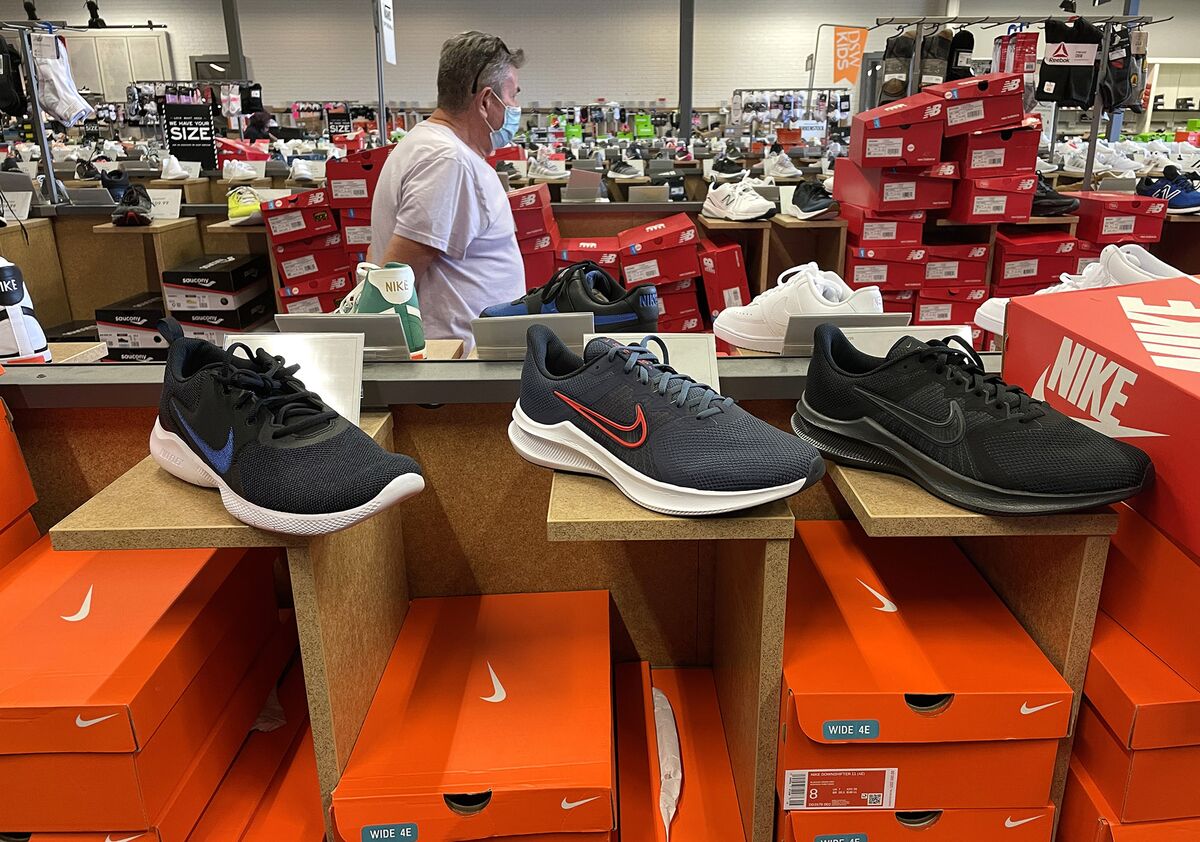[unable to retrieve full-text content]
Go inside the Sydney Sutherland case KARK Article From & Read More ( Go inside the Sydney Sutherland case - KARK )https://ift.tt/3AhktFT
Case
[unable to retrieve full-text content]
Go inside the Sydney Sutherland case KARK Article From & Read More ( Go inside the Sydney Sutherland case - KARK )
Opinions expressed by Entrepreneur contributors are their own.
You're reading Entrepreneur United States, an international franchise of Entrepreneur Media.
As an industry-agnostic agency, my team and I are constantly running up against components of our campaigns that we, frankly, know nothing about. Every industry — every client, really — demands a custom campaign to some degree, and often optimizing campaigns to a client will bring up something that we weren’t prepared for.
When this happens, sometimes, the best answer is to call in a freelancer.
My marketing peers seem to be split entirely down the middle on the topic of freelancers — some swear by them and have a strong corps of freelancers that make up the majority of their agency. Others have never even courted a freelancer and dismiss it as “too much extra work.” Like most things, the answer is somewhere in between.
In my opinion, you need to have some solidity to run a functioning agency. If everyone working for you is there on a freelance basis, you’re going to have a constantly shifting talent pool that, while composed of many capable workers, will indeed become a hassle to maintain. But then again, sometimes a job calls for some outside help, either because you need an expert or just another hand for support.
In my opinion, any potential hassle is outweighed by the benefits of working with freelancers. Here’s why.
When you’re hiring a freelancer or virtual employee, it comes with the territory that you’re getting somebody efficient, communicative, and capable of meeting deadlines. Freelancer's careers live and die by their ability to manage themselves — if they can’t turn around quality work on time, that’s going to catch up with them sooner rather than later.
Experienced and professional virtual employees and freelancers understand that you hired them with the expectation they can handle themselves. If you wanted someone to micromanage, you would have hired for an on-location position. You brought them on to have fewer headaches, not more, and to a large extent, every freelancer will understand that. If you get somebody with significant freelancing experience, they’ll understand how to approach a project effectively without needing you to hold their hand — after all, their livelihood depends on it.
Related: Here are the Advantages of Working as a Freelancer
Because of the fickle nature of the business, successful freelancers don’t mess around: they deliver what you’re asking for, sometimes better than your own employees will. This isn’t a knock against having a permanent staff, but rather a reason why it might be a smart idea to bring on an experienced temporary employee for projects that have a lot riding on them.
If you run an agency or any other client-based business, you’ll understand a freelancer's mentality. They’re running their own business, just like you are. And just like you, they rely on renewing contracts, happy clients and recurring projects to stay afloat. For a freelancer, nothing is guaranteed, so they take nothing for granted less they risk their reputation or professional opportunities.
Most importantly, a freelancer is more likely to be a specialist in a specific area than a member of your staff. A single employee rarely possesses the skills to master several key tasks. Like most people, they probably have one specialty and a toolbelt of other skills they’re decent at. So when you don’t have an expert on staff, hiring freelancers puts you in a position where you can bring someone on to help finish a task, but you’re not stuck with them if the need for their skillset never comes up again.
Unless you’re hiring them to handle overflow tasks, freelancers usually market themselves on their specialties. They’ll have years of experience in project management or email marketing or Facebook dynamic ads. Using my own business as an example, building or redeveloping a client's website is a service we offer, but not one I’m keen on and not one my permanent staff know anything about. For that occasion, I have a freelancer I use who’s a UX designer that can meet the client’s needs as far as websites go. He’s low-touch and delivers things on time, taking any worries about that portion of the project off my shoulders.
Related: How to Make Yourself Indispensable as a Freelancer
Facts are facts: Bringing on freelancers instead of full-time employees will save you money — even in places you don’t expect.
First, you save money through the time cycled back into your day with a freelance employee. There’s minimal to no training involved as most freelancers are experts in their field, so you save potentially weeks of time just by skipping that process. Second, you save money because you’re not paying for a freelancer’s benefits and they’re only part of the team for a limited time.
Finally, they save you space and assets. A virtual employee will have their own setup and workspace so they won’t be taking up a desk or part of what may be already limited office supplies. Especially if you’re just starting out, use freelancers. It will help to eliminate the costs and inefficiencies that stand in the way of long-term growth.
Though it might be a little scary upfront to find people you’re willing to bring on board, once you work with enough freelancers you’ll start to build out a solid network of people you can call on for special projects. Every marketer I know puts a lot of effort into securing partners from PR companies, SEO companies, advertising companies and more. Building a relationship with different freelancers is no different — if you grow and nurture the connection, it will pay off.

A high-profile rape allegation at Chinese tech giant Alibaba has sparked a social media storm in recent weeks about the "toxic" work culture of pressuring employees to drink at work gatherings. As public scrutiny of corporate misbehaviour grows in China, can the age-old tradition of business drinking be dropped forever?
Roughly every two weeks, Mingxi must join her colleagues after work for drinks, something she dreads doing.
After all, it's not just about grabbing a few pints at the corner pub.
Instead, it's often a drawn-out affair involving forced smiles with clients and formal toasting etiquette - and she never feels comfortable.
"I always worry that things can get out of hand, even though I'm quite good at holding my drink," the 26-year-old Guangzhou-based public relations consultant told the BBC.
"Sometimes, people make inappropriate sexual jokes, and I have to pretend to find them funny."
Mingxi is not going by her real name as she did not want her identity revealed.
Her experience is shared by other young Chinese workers who feel pressured into attending such events, in a country where building guanxi - or personal relationships - is key to securing business deals and good standing in the eyes of upper management.
China's tradition of business binge drinking is once again in the spotlight, after a rape allegation against a senior manager at Chinese tech giant Alibaba.
According to a female employee's 11-page account of the incident, which went viral on microblogging platform Weibo last month, she was allegedly raped while unconscious after a "drunken night" on a work trip.

Accusing her superiors of ordering her to drink excessively at a business dinner, she said she had woken up later in her hotel room naked, with no recollection of the evening's events.
After obtaining security footage, she said that the manager had gone into her room four times during the night.
Alibaba sacked the manager and said that he would "never be rehired".
But Chinese prosecutors have since dropped the case, with lawyers saying that the "forcible indecency" committed by the man was not a crime. Police said he would remain under detention for 15 days "as punishment", but the investigation was closed.
Still, it has prompted a social media storm - not just about sexual harassment at the workplace, but also the "toxic" tradition of coercing employees to drink excessively while at work social events.
On Weibo, the hashtag "how to view workplace drinking culture" has since been viewed more than 110m times, with people sharing their own experiences of being pressured to drink in business settings.
There are similarities between China's business drinking culture and those in its East Asian neighbours, where Japan's nomikai and South Korea's hoesik gatherings are also viewed as key to building strong work relationships.
In China, the drinks are usually consumed over lavish banquet dinners, and the potent Chinese liquor baijiu - which contains up to 60% alcohol - is a popular drink of choice.

Younger workers are expected to show respect to higher-ups by making toasts with alcohol, and any businessmen hoping to impress their clients would often do the same.
"Generally, you say very complimentary words, and express your gratitude and appreciation for having this relationship," said Ms Rui Ma, a tech analyst who has attended numerous business dinners throughout China.
"Obviously, the more toasts you do, the drunker you get."
Sometimes, senior managers may pressure the newer hires to help drink their share, leaving their juniors sick and reeling.
"It is hard to say no to your boss because of the strong sense of hierarchy in China," Ms Ma said.
This is also why employees often find it difficult to reject any invitations to the dinners in the first place.
"To refuse such an invite would be seen as extremely disrespectful, and no employee wishing to advance their career would dare consider rejecting the offer," said China market analyst Hanyu Liu from Daxue Consulting.
Mingxi said that she worries about being side-lined at work if she ever opted out of such gatherings.
"These dinners are so important that some people will use them as avenues to suck up to executives. But it's really not for everyone," she said.
In 2016, government officials cracked down on the practice among civil servants, banning them from touching alcohol during official duties.
But the tradition has continued in many private firms - especially when older executives are in charge - and several extreme incidents have made headlines.
In January last year, a security guard in Shenzhen died after reportedly being pressured by his boss to participate in a drinking contest during dinner after work.
His colleague, also forced to drink excessively at the same event, was hospitalised for alcohol poisoning.
According to local media reports, the security company paid out 5,000 yuan ($775, £576) to cover his medical expenses, while the boss involved quit.

Then, in August last year, a young bank worker in Beijing said he was cursed and slapped in the face after turning down a drink from a senior staff member at a banquet.
The story came to light after he wrote about it in an online chat group.
Noting how he also spotted his peers vomiting and "tipsy officials being touchy-feely with female colleagues" at the same event, he wrote: "I want to ask human resources: Does my inability to drink fall short of the company's job requirement?"
In response, the bank confirmed that a senior employee had acted out of line, and apologised on his behalf. It added that it has issued him with a warning and docked his pay.
Meanwhile, the high-profile rape allegations surrounding celebrity Kris Wu earlier this year also featured claims of coerced drinking during a meeting that promised young women job opportunities. Mr Wu has denied all the allegations.
Given the massive outrage over these recent incidents, experts say that the days of forced business drinking may soon be over.
"Business drinking has been happening for such a long time, but the only reason the Alibaba case sparked public backlash was because of social media," Daxue Consulting's Mr Liu told the BBC.
"The Chinese are very connected on the internet, and just given the sheer amount of people online, they can take down people and companies very quickly."
Amid an ongoing wider crackdown by the state on several industries, including on some of the country's largest firms, companies will also be more careful about doing anything that risks government action.
"Taking into account recent dynamics between China's corporate and political space, the last thing firms want is to come under the spotlight," Mr Liu said.
After the Alibaba case broke, CEO Daniel Zhang reassured employees in a memo that the firm was "staunchly opposed to forced drinking culture".
Shortly after, China's anti-corruption watchdog called for an end to the "disgusting" tradition, adding in an online commentary that it would strengthen oversight of Chinese companies to combat it.
"China's after-work drinking culture will definitely change," said Mr Liu.

Ms. Marcano, a 19-year-old college student in Orlando, Fla., was last seen on Sept. 24.
A body believed to be Miya Marcano, a 19-year-old college student who was reported missing last month, was found in Orlando, Fla., on Saturday, the authorities said.
Ms. Marcano had been missing since Sept. 24, when she was last seen in a red shirt and jeans at the Arden Villas apartment complex in Orlando, where she worked and lived, the Orange County Sheriff’s Office said.
On Saturday, searchers found what they believed to be Ms. Marcano’s body in a wooded area near Tymber Skan apartments in Orlando, about 20 miles from the apartment complex where she lived, the authorities said.
“Our hearts are broken,” John W. Mina, the Orange County sheriff, said at a news conference on Saturday.
Valencia College, where Ms. Marcano was a student, said in a statement that “the entire Valencia community is grieving the loss of one of our own.”
The sheriff said officials could not yet identify a cause of death. “Although we are very certain of the identity, the positive identification will have to come from the medical examiner’s office,” he said.
The authorities have said that Armando Manuel Caballero, 27, was a “person of interest” in Ms. Marcano’s disappearance. Mr. Caballero was a maintenance worker at the Arden Villas apartments and had expressed a romantic interest in Ms. Marcano but she “repeatedly rebuffed” him, Sheriff Mina said at a news conference on Thursday.
Mr. Caballero had initially told investigators that he last saw Ms. Marcano at 3 p.m. on the day she was last seen.
Investigators obtained an arrest warrant for him because a maintenance-issued master key fob, which Mr. Caballero was known to be in possession of, was used to enter Ms. Marcano’s apartment on the Friday afternoon she was last seen, the sheriff said.
On Sept. 27, officers found Mr. Caballero dead from what appeared to be suicide in the Camden Club Apartments in an Orlando suburb. The sheriff’s office then labeled him the prime suspect in her disappearance.
Cellphone records showed Mr. Caballero was near the Tymber Skan apartments — where the remains believed to be Ms. Marcano’s were found — on the night that she was reported missing.
“He was there for about 20 minutes,” Sheriff Mina said. “Nothing in the records indicate that he ever returned there prior to killing himself.”
More than 60 detectives had been working on the case. Search efforts spanned three counties and included 175 people, helicopters and dive teams. The F.B.I. announced on Friday that it was helping the sheriff’s office with the case.
Sheriff Mina said officials believed “pretty conclusively” that Mr. Caballero was responsible, adding that they would not be looking for other people in connection to the case.
“As a community, as a sheriff, as a father, obviously we are grieving the loss of Miya,” he said. “Again, we can’t imagine the pain and anguish that Miya’s parents, family and loved ones and friends — really our entire community — have gone through and will continue to go through.”
On Saturday morning, Ms. Marcano’s father, Marlon Marcano, said on Instagram that his heart was broken. “I need it to be whole again,” he said.
Ms. Marcano’s disappearance follows that of Gabrielle Petito, a white woman who was reported missing last month and whose widely publicized case raised new questions about the tens of thousands of women and girls — many of them Black, Latina or Indigenous — who are reported missing each year and go unnoticed.

Fears about margin-shredding inflation are palpable among corporate executives and Wall Street analysts, but equity investors are relatively sanguine.
Shares of companies with higher pricing power -- the capacity to pass on costs to customers without harming the business -- are crumbling relatives to their less-advantaged peers. Meanwhile, S&P 500 stocks with the highest labor costs are trouncing firms with relatively low ones. And corporate operating margins are at all-time highs.

President Joe Biden said he’ll take the case for his economic agenda to the U.S. public, seeking to build support as Democrats in Congress deadlock over competing priorities and his poll ratings sag.
Biden on Friday effectively reset the timeline for advancing the two bills -- a $550 billion plan for infrastructure projects that House Speaker Nancy Pelosi had signaled she wanted to pass this week and a larger package of social programs and other priorities of progressive Democrats that includes tax increases for the wealthy and corporations.
As the days shorten and the dark hours stretch, every impulse in me is to slow down, get under a blanket and stay there till spring. In a...
